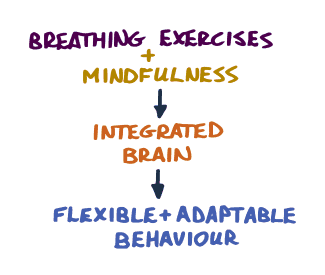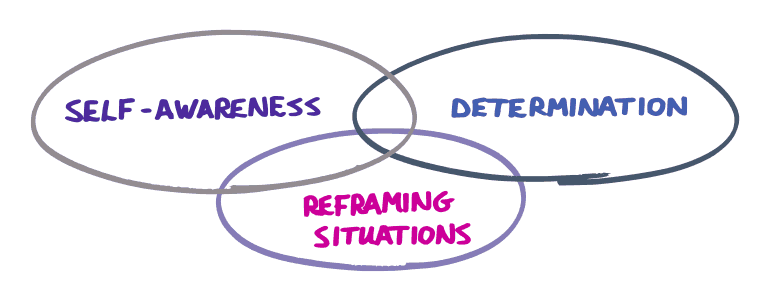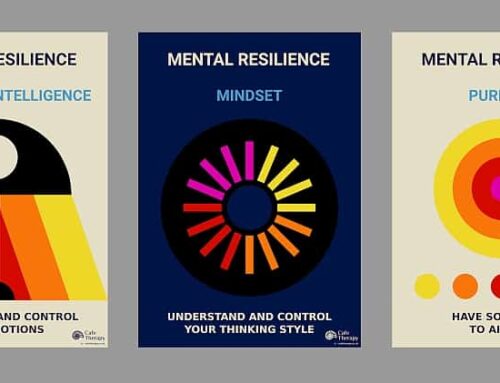How do you build resilience to anxiety and depression?
In this article we want to share some ideas about using resilience techniques for better mental health. We’re going to expand on the practical exercises we shared in our previous blog article on resilience and the integrated brain and put the focus on improving mental health and guarding against common mental health problems.
Just like physical skills, mental skills like mindfulness and resilience take practice. You can’t expect to become an Olympic champion overnight! But with a little time and effort you will soon see improvements and start to get the benefits. We recommend you set aside fifteen minutes each day to practice controlled deep breathing exercises.
Build on the breathing exercises with some mindfulness techniques and you will notice that your brain becomes more integrated. This helps to combat anxiety and depression by allowing you to process and respond to challenges effectively. It helps you choose the right interpretation of events, make better decisions and ultimately get better outcomes. In a nutshell, it’s about you becoming more flexible and adaptable.

What makes someone resilient?
Resilient people manage stressful situations and their own levels of stress more easily. They embrace challenges, persevere in the face of obstacles, learn from their mistakes and move on. They are also less susceptible to mental health problems like depression and anxiety. This is because they have developed self-awareness, determination and problem solving skills to cope with what life throws at them.
The good news is that just like physical skills, these mental skills can be learned. It’s true that some people are naturally resilient but many of the most resilient people – think of top athletes – have learned these mental skills in the same way they have learned their physical skills.
What does a resilient mindset look like?
We’ve done the leg-work for you and studied some of the most resilient people around from a range of backgrounds including sports, business and politics. People like Lionel Messi and Naval Ravikant.
These are the attributes they all have in common:
-
They see challenges as opportunities to develop
-
They persevere when the going gets tough
-
They learn from their mistakes
How to develop a resilient mindset
These are the mental skills you need to build a mindset resilient to mental health problems like anxiety and depression:
-
Self-awareness to spot negative thought patterns
-
Determination to change how you do things
-
Reframing situations to create opportunities

Building resilience to anxiety and depression – together with Cafe Therapy
Resilient people handle everyday stress better and are less susceptible to mental health problems like depression and anxiety. Cafe Therapy can help you develop resilience your workplace by partnering with your company to deliver enlightening and effective training and workshops, as well as helping you access, evaluate and act upon feedback from your people.
Our thoughtfully designed presentations and activities bring people together and foster a spirit of community and co-operation and bring real results for your company. Drop us an email and start a conversation with Cafe Therapy. Find us on Facebook and Twitter.





